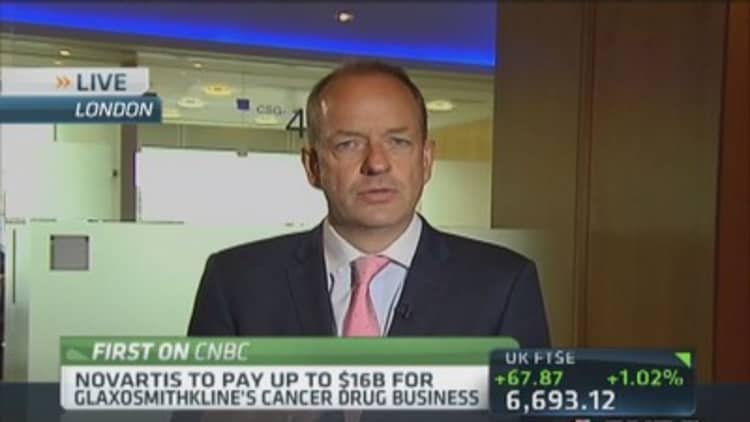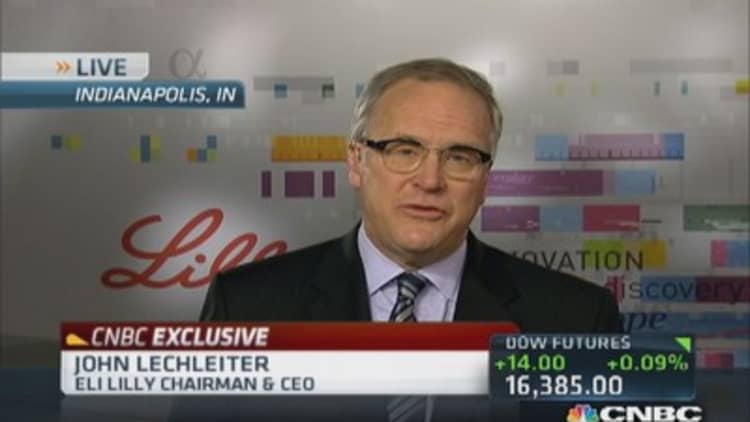
The megabillion-dollar deals with Novartis allow GlaxoSmithKline to "significantly expand" its world-leading vaccine business and create value for shareholders by selling its oncology treatments, GSK's CEO told CNBC on Tuesday.
Sir Andrew Witty's comments came after the announcement that Swiss-based Novartis is buying GlaxoSmithkline's cancer business in a deal valued at as much as for $16 billion, and selling its vaccine business to GlaxoSmithkline to $7 billion.
Read More
"We've been a very newcomer to oncology in the last four or five years," Witty said in a "Squawk Box" interview. "Novartis is world No. 2. This was an opportunity to put our assets that we think are important medicines for patients in the hands of a company with a tremendous distribution network."
"That's what really allows, I think, this tremendous value to be achieved for our shareholders," he added—while also praising the new joint venture between his U.K.-based GlaxoSmithKline and Novartis on consumer health care.
The reverse is true in the vaccine transaction. "By bringing into our portfolio these Novartis vaccines—both today's and the possible future vaccines that they have under development—we really believe we're bringing them into family to make the most out of them in the over the next 10, 20, 30 years," Witty's said. "The vaccine business is a true annuity business."

Novartis' separate deal with Eli Lilly
In a separate deal, Novartis said it is selling its animal health division to Eli Lilly of the United States for $5.4 billion and putting its flu business up for sale.
Lilly Chairman and CEO John Lechleiter told CNBC's "Squawk Box" on Tuesday that the acquisition makes his company's animal health business No. 2 in the world.
There are a lot of synergies between animal health and human health, he said. "We believe this represents a great market opportunity for us as people around the world look to put more protein into their diets—safe, nutritious, affordable food. And of course, we're all concerned about our pets."
Reacting to the Novartis-GlaxoSmithkline oncology deal, Lechleiter said he learned about the transaction, when he read the press release Tuesday morning.
"We're got a pretty good cancer unit of our own," he said.
"It's been an interesting 12 hours for us because last evening we learned the FDA approved Cyramza, which was one of the pipeline products in that ImClone deal we announced five years ago," he continued. "It will be indicated for advanced gastric cancer for patients who have not responded to earlier chemotherapy."
—By CNBC's Matthew J. Belvedere


